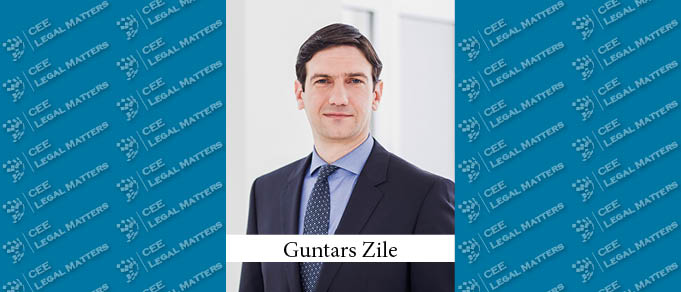COVID-19 remains one of the most prominent factors, directly and indirectly impacting the overall political, legal, and economic scenes in Latvia, according to Cobalt Partner Guntars Zile.
"Latvia was one of the first countries in Europe to encounter the fourth wave of the pandemic, which led to another lockdown," Zile says. "Last week, a large part of the restrictions was lifted but, undeniably, there are considerable implications. To name a few, issues such as vaccination and restrictions impacting business stir public debate. Therefore, COVID-19 remains a continuously discussed topic," he adds.
"One of the most acute political and legal issues is the partially mandatory vaccination rule," he explains. "According to this rule, public sector employees, inter alia state and municipality officials and healthcare workers, are required to get vaccinated, and vaccination refusal is a ground for dismissal. Since the rule's adoption, hundreds of constitutional, administrative, and civil claims have already been filed in the courts, challenging the compatibility of the regulation with human rights and the legality of dismissals on this ground." According to Zile, due to scale, it’s a new and unique legal challenge for all jurisdictions where mandatory vaccination, in one form or another, is already in place or is being discussed. One of the most controversial topics is the potential 'dismissal' of Members of the European Parliament who refuse to undergo mandatory vaccination. "Elected officials enjoy special constitutional guarantees against dismissal, which adds another unique layer of complexity to such cases," he adds.
Zile points out that initial rulings from the courts show that the mandatory vaccination rule is upheld and it is more likely for that to be the case in the future, while only in a very few exceptional cases, due to specific circumstances, persons would be exempted from the vaccination mandate.
Zile highlights that, aside from COVID-19 measures, there are rather few updates in the political and legal sphere. Despite regular discussions regarding the potential instability of the "government and criticism of the government’s actions throughout the pandemic, so far the government remains relatively stable. One of the positive signs is Parliament passing the annual budget law for next year, which is an annual 'test' for the government" he adds.
Zile points out that this year was characterized by a continuously active corporate transactions scene as well as the long-overdue revival of interest in the local stock market. "After quite a long period of silence, there are now a number of new companies going for and succeeding with local IPOs. In the last couple of months alone, two new companies – fuel retailer Virsi A and financial services provider Delphin Group – had successful IPOs," he says.
"Of course we have also seen exits from the stock exchange. For instance, Olainfarm, a local manufacturer of pharmaceuticals, decided to leave the stock exchange just last month. This comes as the most recent move after a number of other exits earlier this year. However, hardly any of those was a surprise to anyone, as these companies mostly landed on the stock exchange during their privatization process, and becoming part of the regulated market was never an organic and natural process, which is very different when compared to the new breed of companies that are embracing the opportunities offered for long-term growth prospects by entering the stock exchange," he explains. "There were also lots of private bond placements recently, and we can hope that these positive trends will continue and expand in the following years," Zile concludes.
















